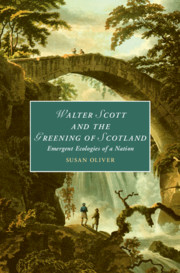‘Lucidly written and theoretically informed, this study asserts the vital relationships between literature, social history, and the natural world … Highly recommended.’
E. Kraft
Source: Choice Connect
‘Walter Scott and the Greening of Scotland shows that corrections to modernity’s excesses emerged simultaneously within the discourse of modernity, countering a false triumphalist narrative of linear progress toward liberal social economies. In laying the foundation for this kind of reassessment, Oliver has published an important work that scholars will find rewarding for years to come.’
J. Andrew Hubbell
Source: Modern Philology
‘The sweep of research on display in this book is breathtaking.’
Alexander Dick
Source: European Romantic Review
‘… there is much fascinating material in the book exploring the way Scott uses myth and legend as a way of expressing the “enjoyable magic” of the land.’
Mandy Haggith
Source: Green Letters: Studies in Ecocriticism
‘… an ambitious book, in dialogue throughout with recent work on nature and land ethics … [that] lays down an important challenge and an invitation to further studies.’
Kathryn Sutherland
Source: The Times Literary Supplement
‘Susan Oliver’s Walter Scott and the Greening of Scotland represents an important contribution to the field, as it makes a compelling case for what at first may seem a surprising addition to the list of eco-conscious Romantics: the estate-owning Tory, Walter Scott. Yet Oliver provides a fascinating and comprehensive assessment of his work from an environmental perspective, which demonstrates the full extent of his contribution to early nineteenth-century ecological theory and historiography.’
Kenneth McNeil
Source: The Wordsworth Circle



